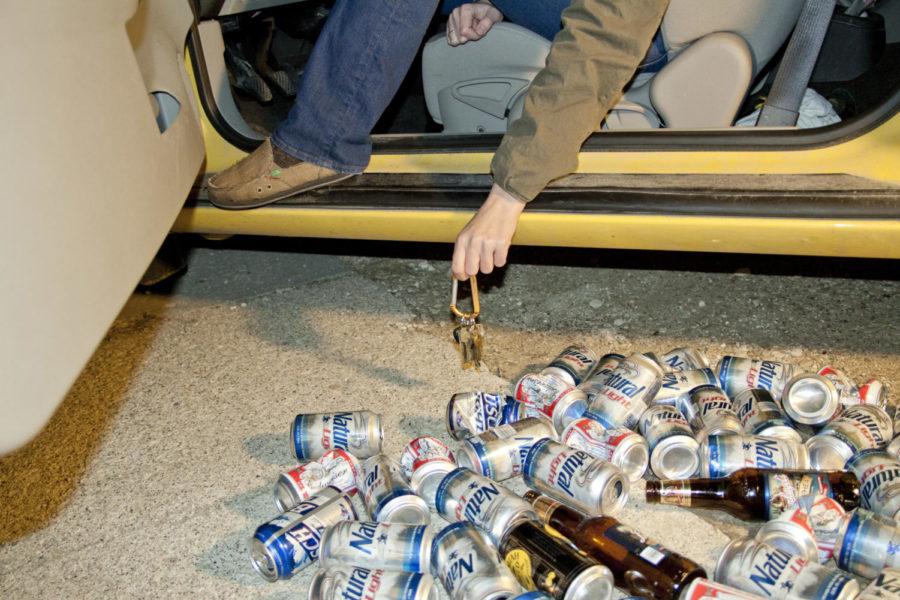Campus police stress binge drinking prevention
Photo: Bryan Langfeldt/Iowa State
Alcohol poisoning is a serious disease that can not only land people in the hospital, but if untreated, can be fatal. It is important for college students and young adults to recognize the signs of alcohol poisoning.
June 27, 2011
It is no secret that many college students regard binge drinking as a normal behavior. ISU police may not be able to change that belief, but they work hard to mitigate its consequences.
Binge drinking is “a pattern of drinking that brings a person’s blood alcohol concentration to 0.08 or above,” according to the National Institute on Alcohol Abuse and Alcoholism website. For most men, that means about five drinks in two hours. Most women need about four drinks in two hours to reach that level.
More than 40 percent of college students reported binge drinking in the past two weeks, the website said. However, that figure ranges between one and 70 percent, depending on the school the students attended. Habitual binge drinking is associated with academic problems, liver damage, sexual assault, fatal injuries and other adverse outcomes.
The ISU Department of Public Safety does not collect actual binge drinking statistics, which are typically obtained through self-report surveys. Instead, they calculate the average blood alcohol content of detainees in alcohol-related arrests. In 2010, the average was 0.189 — more than enough to significantly impair judgment, perception and motor skills.
“We track and analyze alcohol-related information on an ongoing basis, including custodial arrests and alcohol overdoses,” said Jerry Stewart, director of public safety. “Our goal is to identify any trends, so that it might help us direct our future prevention efforts.”
Custodial arrests, Stewart said, occur before an individual is detained and transported to the Story County Justice Center in Nevada.
In 2010, campus police made 419 alcohol-related custodial arrests. Of those, 304 were for public intoxication; the rest were for OWI charges. Most incidents occurred on campus property. Three hundred twenty-one of those arrested were male.
“A fairly large percentage of our arrests are driven by either direct observation by officers or third-party reports,” Stewart said. “One of the more interesting facts is that 50 percent of the people arrested by the Department of Public Safety are not affiliated with Iowa State.”
Arrest rates tend to rise during football games, Veishea and other periods of increased activity, Stewart said.
“The criteria for officers contemplating an arrest largely centers on whether that individual poses a danger to self or others,” Stewart said.
Each time someone is arrested on an alcohol-related charge, campus police gather information is fed into various prevention programs.
“We do attempt to track where the individuals we arrest had their last drink, and then we then try to determine whether there is any evidence of overserving,” Stewart said. “We then forward this information to the City of Ames so that they can direct their education efforts to the community.”
These education efforts, often conducted by Ames police officers, include training for bouncers, bartenders and others responsible for upholding alcohol-related laws.
The Iowa State police also work in conjunction with the greek community, the Department of Residence, the Dean of Students office, and others to provide information and presentations on alcohol abuse.
“Our department stresses early intervention in regard to enforcement,” Stewart said. “We believe it is far better to keep concerns from developing into problems.”
Stewart emphasized the importance of responsible, cooperative behavior above all else.
“We encourage community members to immediately report alcohol overdoses. In those cases, the prompt delivery of medical care is the highest priority,” Stewart said.







